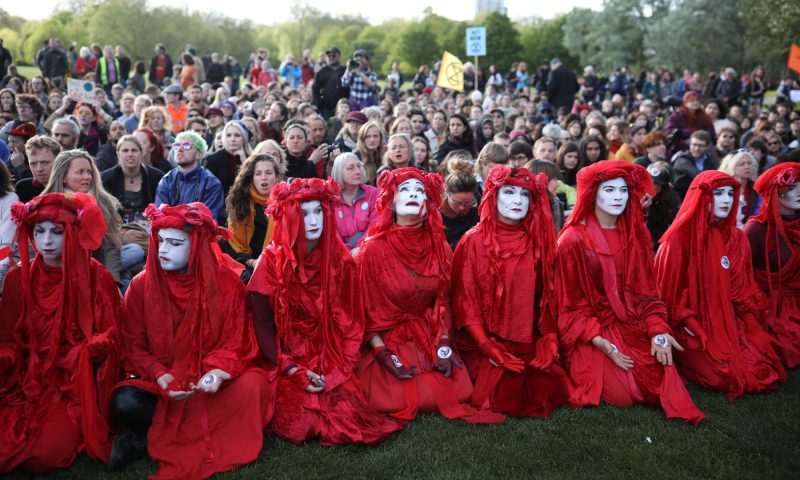Sarah Hoyt borrows a notion from Terry Pratchett’s Discworld series to explain a real phenomenon in our world:
Pratchett’s “Witches” world was so similar to my own, from jumping over fires to get married (not legal in my day, but there was memory of it) to various local folk superstitions, that it was always a surprise when he pulled something I’d never heard of.
One of these is the “rough music.”
When someone has done just about enough that a small village can no longer put up with him, the men in the village get together and play a barbarous and terrible music as they nerve themselves up for the barbarous and terrible things they have to do.
In Europe — hell, all over the rest of the world — the rough music is playing. Just because no one is reporting on this, it doesn’t mean it’s not going on, and growing, and nerving itself up to … something.
“Gilets jaunes #12” by Christophe Becker is licensed under CC BY-NC-SA 2.0
The level at which the Gilets Jaunes have been under reported is extraordinary, except that it hasn’t stopped the uprising either.
(And now I think about it, how much do we see in main stream news about Hong Kong? And it hasn’t stopped the uprising either.)
[…]
So, let’s talk about the rough music. Sure, you can hear it. I can hear it too. The stomp and the drumming can be heard all over the world.
That which can’t go on, won’t.
But I implore you to stop and think: if the rough music plays, what comes after?
There might be no hope for Europe, but Europe’s … ah … how do we put this? Europe’s tenets, their stand before the world, an improvement as they were on everything before them, are not ours.
Even in Europe I suspect when this bursts — and there it will burst. The elites flaying and screaming is only making it worse — you’re going to see things that will make you wonder why on Earth good American boys died in WWII. Because we’re about to get National Socialism, the sequel. National because they’re getting tired of the international elites (and who isn’t) and socialism because the poor bastards have not experienced anything else their entire adult lives.
It will happen. It is necessary. The EU was probably one of the most bizarre ideas in the history of bad ideas. The way it’s run which essentially steals the franchise from ordinary people was just the old style “good families” coming back into power through a back door.
But what comes after will probably be horrific. If we’re all lucky it will also be briefish and like France after the revolution they’ll find their way to something slightly less insane. With or without Napoleon and Europe wide war? Ah … that’s where we need to talk.
First however, let me say that hearing the rough music from the rest of the world is starting to echo here. We see what’s going on there. And we hear strange and stupid stuff, like the “whistleblower of the day” and an impeachment without voting and of course, pancake-gate.
Faced with that kind of behavior you obviously think “It’s insane.” And “We have to stop it.”









